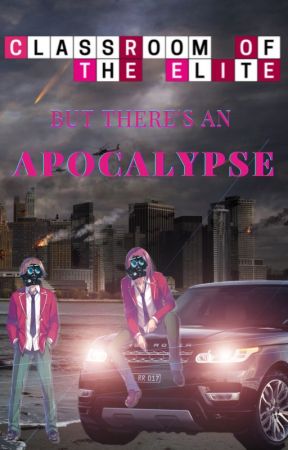POV - Ayanokoji | 6 AM
The sun was rising on the horizon–the only assurance of safety in this uncertain world. At the moment, we were in a state of limbo. It was hard to tell if we would regain some semblance of normality any time soon, or whether the downward trend would resume. Regardless, survival is the only priority. Well, to be more specific, part of my priorities.
While thinking about priorities, I began to recall a time when I studied the human prioritization of needs in the White Room.
During the 20th century, Abraham Maslow studied human motivation. He outlined his theory in a 1943 paper titled "A Theory of Human Motivation." Since then, many have studied Maslow's hierarchy of needs, and empirical evidence remains contested. However, the studies influenced by Maslow's ideas were particularly fascinating.
In 1997, there was an interesting paper published. It was an exploratory factor analysis study conducted in the US and consisted of 13 items. Participants were asked to rank each item from 1993 to 1994–which was notably a comfortable time of peace of economic expansion. In this study, two levels of need were identified by participants. In 1991, during the Persian Gulf War, a similar study occurred, except participants were asked to identify needs from the previous year before the war had begun. Both times, participants organized needs in the same order: survival and then psychological. Taking into account the results of the two studies, it validated the notion that people possess the capacity to remember and assess the significance of their needs.
When a similar survey was done retrospectively for citizens in the Middle East during the 1990 peacetime, there were three levels of needs concerning importance and satisfaction, and they were distinct from the US citizens. This showed that there were factors that could alter the hierarchy of needs, such as cultural variations.
Most recently, there was a study conducted like the ones before, except the focus was on Japan. It revealed a discrepancy between the ordering of needs, where community, which is a lower-order need in Maslow's hierarchy, was found to be the highest-order need, followed closely by self-acceptance and growth. Although, the lower-order needs stayed consistent, with physiological followed by safety.
Now...I wonder how those in the White Room would rank their needs, or maybe those in an apocalypse...
People wouldn't remain inside their homes forever. Eventually, they would need to obtain food and water–basic physiological needs. Safety is supposed to be the next motivation, however, in an unknown apocalypse, I doubt this need will be fulfilled by many. Most people will fall into a few categories. There will be those that choose to succumb to the uncertainty and go into a static panic, essentially becoming paralyzed by fear. Then there will be some that choose to accept safety in the present moment as satisfactory and carry on regardless.
New deranged justifications for behavior will form as people try to fulfill the hierarchy of needs. With unknown threats lurking in, quite literally, the shadows, those that reach the level of self-esteem fulfillment will be at a crossroads. They can either choose to stay realistic, sacrificing the growth of ego and attention for increased chances of survival or delude themselves into believing they are strong. Those that fall into the latter category will only become problematic.
New religions will form as people look for a sense of community and devotion to a higher power.
Reaching self-actualization, and realizing innate biological goals of reproduction and parenthood would be one of the most dangerous. After all, taking care of a child in a deadly world would require a substantial amount of competence.
In conclusion, safely fulfilling the hierarchical human needs will become increasingly unlikely, and unsafe.
Maslow may not have been completely correct in the ordering of human desires, but the idea that they form a stable pyramid complex has its merit. If even one need isn't fulfilled properly, the resulting complex is unstable when under applied pressure.

YOU ARE READING
Classroom of the elite, but there's an apocalypse.
FanfictionThe Classroom of the elite universe, but an apocalypse happens. Slow updates. This is my first fic so it'll probably suck.

